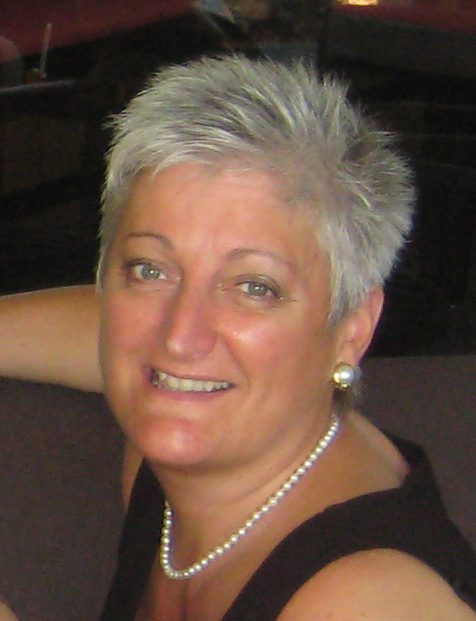Susanne Sulzberger

MAS 2010
Where did Susanne work?
Work term 1 (4 months)
Contract Researcher, Athabasca University
Work term 2 (4 months)
Student Archivist, Library and Archives Canada
What did Susanne accomplish?
Athabasca University
As a Contract Researcher, Susanne was involved in a research project whose goal was “to determine the viability of Athabasca University Archives to become the repository choice for records of Canadian non-profit environmental organizations.” In order to achieve this goal, Susanne created a questionnaire to determine the extent of the records of these non-profit organizations, where they stored their records, and whether the organization would consider storing their records at Athabasca University. She also created a comprehensive spreadsheet where she inputted the information. Through this experience, Susanne gained an insight into the process of conducting research and acquiring records in the private sector and how to create effective questionnaires.
Library and Archives Canada (LAC)
With the Government Records Branch of Library and Archives Canada, Susanne screened records for each department according to their respective records disposition authorities and created an accession level description and finding-aid for architectural drawings for a Public Works accession. Susanne was trained in ATIP review and learned how to server documents that were released to the public. In addition, she had the opportunity to accompany archivists on visits to government departments in order to assess the kinds of records created and their specific record keeping systems. The insight she gained through this work term altered her career path and Susanne says, “because of my work with LAC I gained an appreciation for the complexity and volume of government records and that government records can be an interesting and rewarding area of work.” Susanne continued to work part-time with LAC after completing her co-op work term and was bridged into a full-time position upon graduation from the MLIS Program.
What would Susanne tell others about Co-op?
To students considering the co-op program Susanne says, “definitely take advantage of this fantastic opportunity. The experience of preparing a resume, going on interviews, and working in the area of your choice is an invaluable experience. It really does prepare you for what lies ahead in the real world after school.”
Where is she now?
Upon graduation Susanne was bridged into a full-time position with Library and Archives Canada where she is working as an ATIP Analyst and assists with reference archivist work.
Benefits of Co-op
The co-op program gave Susanne an opportunity to put the theoretical knowledge she gained in her studies into practice in both the private sector and in government, leading to a full time job upon graduation. Susanne believes that “it is important to be able to make the connection between theory and practice before you finish a school program as it prepares you for the reality of working in your chosen field and shortens the learning curve when you are hired.”
Susanne Sulzberger



MAS 2010
Where did Susanne work?
Work term 1 (4 months)
Contract Researcher, Athabasca University
Work term 2 (4 months)
Student Archivist, Library and Archives Canada
What did Susanne accomplish?
Athabasca University
As a Contract Researcher, Susanne was involved in a research project whose goal was “to determine the viability of Athabasca University Archives to become the repository choice for records of Canadian non-profit environmental organizations.” In order to achieve this goal, Susanne created a questionnaire to determine the extent of the records of these non-profit organizations, where they stored their records, and whether the organization would consider storing their records at Athabasca University. She also created a comprehensive spreadsheet where she inputted the information. Through this experience, Susanne gained an insight into the process of conducting research and acquiring records in the private sector and how to create effective questionnaires.
Library and Archives Canada (LAC)
With the Government Records Branch of Library and Archives Canada, Susanne screened records for each department according to their respective records disposition authorities and created an accession level description and finding-aid for architectural drawings for a Public Works accession. Susanne was trained in ATIP review and learned how to server documents that were released to the public. In addition, she had the opportunity to accompany archivists on visits to government departments in order to assess the kinds of records created and their specific record keeping systems. The insight she gained through this work term altered her career path and Susanne says, “because of my work with LAC I gained an appreciation for the complexity and volume of government records and that government records can be an interesting and rewarding area of work.” Susanne continued to work part-time with LAC after completing her co-op work term and was bridged into a full-time position upon graduation from the MLIS Program.
What would Susanne tell others about Co-op?
To students considering the co-op program Susanne says, “definitely take advantage of this fantastic opportunity. The experience of preparing a resume, going on interviews, and working in the area of your choice is an invaluable experience. It really does prepare you for what lies ahead in the real world after school.”
Where is she now?
Upon graduation Susanne was bridged into a full-time position with Library and Archives Canada where she is working as an ATIP Analyst and assists with reference archivist work.
Benefits of Co-op
The co-op program gave Susanne an opportunity to put the theoretical knowledge she gained in her studies into practice in both the private sector and in government, leading to a full time job upon graduation. Susanne believes that “it is important to be able to make the connection between theory and practice before you finish a school program as it prepares you for the reality of working in your chosen field and shortens the learning curve when you are hired.”